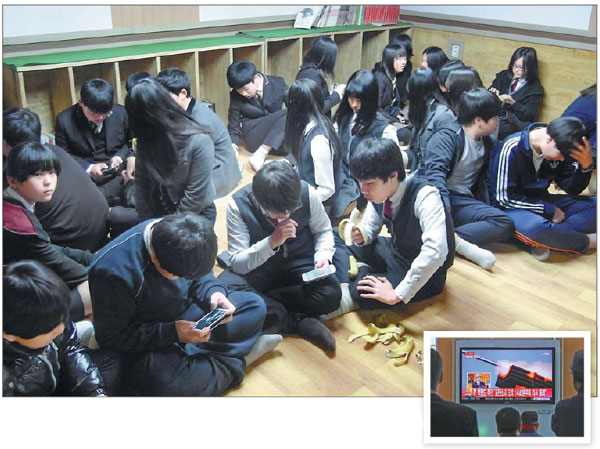Two Koreas exchange artillery fire
Updated: 2014-04-01 11:02
By Zhou Wa in Beijing and Chen Weihua in Washington (China Daily USA)
|
||||||||
China voices its concern over situation and calls for calm on Korean Peninsula
Pyongyang and Seoul traded fire over a disputed sea border on Monday, but Chinese analysts dismissed the possibility of a major military confrontation.
More than 100 shells out of about 500 fired landed in the Republic of Korea's waters as part of a drill, prompting ROK marines to fire more than 300 rounds into the DPRK's waters, defense officials said in Seoul.
The DPRK had said it intended to conduct the exercise in response to the United Nations' condemnation of last week's missile launches by Pyongyang and against "threatening" military drills in the ROK by US forces.
Pyongyang also accused Seoul of "gangsterlike" behavior over the weekend, following the "abduction" of one of its fishing boats, and threatened to retaliate. The ROK said it sent the boat back after it drifted into its waters.
China expressed concern over increased tension on the Korean Peninsula.
"We urge all parties to maintain calm, exercise restraint and refrain from acts going against peace and stability on the peninsula," Foreign Ministry spokesman Hong Lei said at a daily news briefing.
"The current situation on the peninsula is quite vulnerable, and safeguarding peace and stability conforms with the common interests of all parties," he said.
The DPRK had ensured maximum publicity for its live-fire drill by taking the unusual step of notifying the ROK beforehand and issuing a no-sail, no-fly advisory.
As a precaution, border island residents were evacuated as ROK fighter jets took to the skies.
Residents of Baengnyeong Island, one of the remote islands near the firing area, were moved to bomb shelters, a government official said. The evacuation order was lifted an hour after the DPRK drill ended.
Wang Junsheng, a researcher of East Asian studies at the Chinese Academy of Social Sciences, said Pyongyang's move may have been in response to several events.
The DPRK has staged a series of missile launches, mostly short range, in response to what it sees as a threat posed by annual US-ROK military drills. The current drill, Foal Eagle, ends on April 18.
Jia Xiudong, a senior researcher of international affairs at the China Institute of International Studies, said, "Pyongyang knows tension will not help it to break its isolation by the international community."
At the same time, the ROK does not want the situation to get out of control, because increased tension is contrary to the peaceful progress initiative of ROK President Park Geun-hye, Jia said.
The White House said the DPRK's actions are dangerous and provocative and will further aggravate tensions in the region.
White House spokesman Jonathan Lalley said the US remains steadfast in its commitment to the defense of its allies and is working in close coordination with the ROK and Japan.
US Defense Secretary Chuck Hagel said on Monday the provocation North Korea engages is dangerous and needs to stop. He said he will discuss with the Chinese on his trip there this coming week.
US State Department spokeswoman Marie Harf on Monday called on the DPRK to cease and desist from what she described as "needlessly threatening regional peace and security".
She said these kinds of provocations only strengthen the resolve of the international community and deepen Pyongyang's isolation.
Douglas Paal, vice-president for studies at the Carnegie Endowment for International Peace, said it was the DPRK that fired first in the sensitive area. "Therefore the South returned a portion of the fire into the surrounding waters to remind the North it is not going to leave provocations without a response," said Paal.
Paal said the young DPRK leader is running big risks with his own and his neighbors' security. "I would add that over the weekend, Pyongyang hinted at a nuclear test of a new type, further ignoring China and other members of the Six Party Talks and the UN Security Council's warnings," he said.
ROK Defense Ministry spokesman Kim Min-seok said the DPRK's action "is a planned provocation and an attempt to test our military's determination to defend the Northern Limit Line and to get an upper hand in South-North relations".
The Northern Limit Line, a maritime border that wraps itself round part of the DPRK's coastline, has been the scene of frequent clashes.
In 2010, four people were killed when the DPRK shelled the ROK island of Yeonpyeong. Earlier that year, a ROK naval vessel was sunk close to the line by what some countries said was a DPRK torpedo, although Pyongyang denies involvement.
Agencies in Seoul contributed to this story.
Contact the writers at zhouwa@chinadaily.com.cn and chenweihua@chinadailyusa.com.
|
Above: Students gather at a shelter on the ROK island of Yeonpyeong near the border with the DPRK on Monday. Pyongyang and Seoul exchanged artillery fire off their disputed western sea border; inset: A TV program reports the DPRK plan to conduct a live-fire drill on Monday. Reuters-Yonhap |
(China Daily USA 04/01/2014 page1)

 World's tallest ferris wheel opens in Las Vegas
World's tallest ferris wheel opens in Las Vegas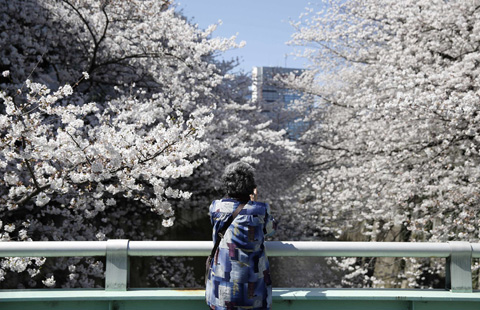
 Cherry blossoms in full bloom in Tokyo
Cherry blossoms in full bloom in Tokyo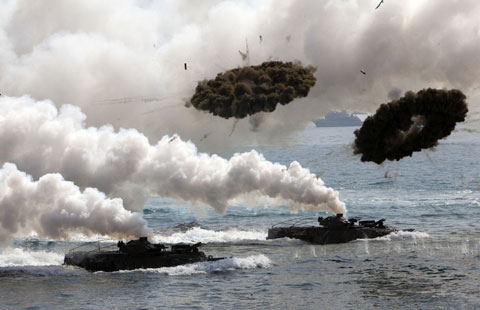
 US-South Korea joint landing exercises in Pohang
US-South Korea joint landing exercises in Pohang
 Did we get ya? Happy April Fools' Day!
Did we get ya? Happy April Fools' Day!
 Meet the crew of the drama of Green Snake
Meet the crew of the drama of Green Snake
 Students compete in Chinese competency
Students compete in Chinese competency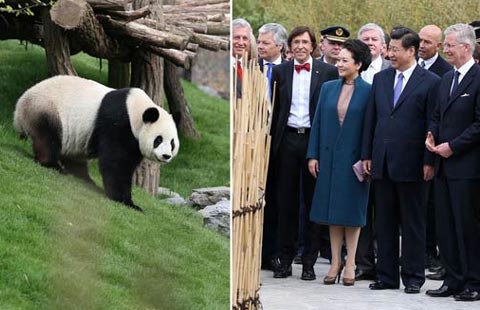
 Chinese, Belgian heads of state launch panda house
Chinese, Belgian heads of state launch panda house
 New British royal family photo released
New British royal family photo released
Most Viewed
Editor's Picks

|

|

|
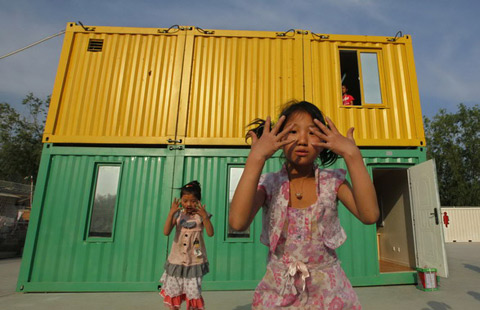
|

|

|
Today's Top News
We should join hands, Xi tells EU
Weibo to list on Nasdaq
Sino-US relations going mainstream
Beijing must help win the global battle on climate
Chinese moving into E. Harlem
Two Koreas exchange artillery fire
Remembering a true hero of WWII
DPRK ready for another nuke test
US Weekly

|

|
